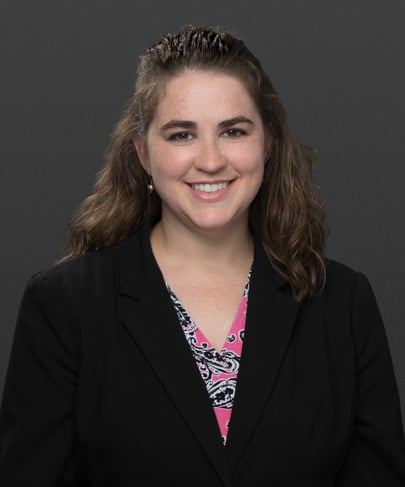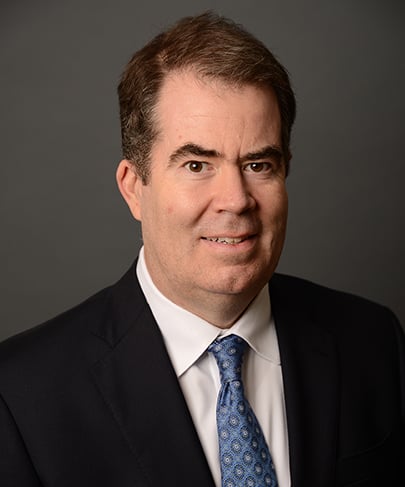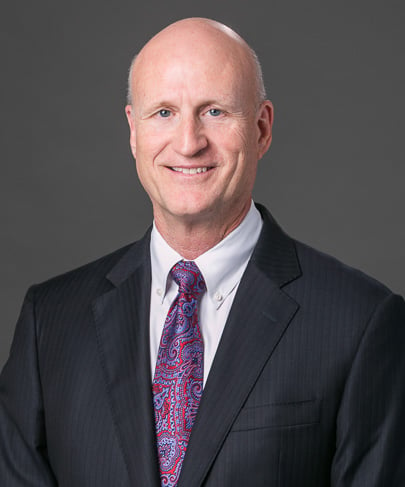U.S. Supreme Court Splits the Baby as It Stays the Private Employer Vaccine or Test Mandate but Keeps the Healthcare Vaccine Mandate in Place
DOWNLOAD PDFClick “Subscribe Now” to get attorney insights on the latest developments in a range of services and industries.
On January 13, 2022, the United States Supreme Court (“Court”) issued two critical decisions: one staying the OSHA ETS vaccine or test mandate, the second allowing the OSHA CMS vaccine mandate for healthcare facilities to move forward.
THE OSHA ETS IS STAYED
By way of background, the OSHA ETS requires all employers with more than 100 employees to be vaccinated or submit to weekly testing and comply with face-covering requirements effective February 9, 2022. The notice and documentation requirements of the ETS went into effect January 10, 2022, meaning many employers likely rolled out policies that they may choose to roll back or otherwise rescind. The Firth Circuit had stayed the requirement, but the Sixth Circuit reversed the Fifth Circuit, lifted the stay, and allowed the vaccine or test mandate to charge ahead. The Supreme Court heard the issue on briefs and via oral argument on January 7, 2022, in the matter of National Federal of Independent Business, et al., v. Department of labor, occupational Safety and Health Administration, Nos. 21A244 and 21A247 (January 13, 2022), and issued its decision to stay the mandate from going into effect.
 As the high Court noted, the mandate requires that covered workers (i.e., those who worked for employers with 100 or more employees) receive the COVID–19 vaccine or submit to weekly COVID-19 tests at their own expense and on their own time and wear a mask in the workplace. The ETS also pre-empted contrary state laws. As the Court pointed out, and as we noted in our blog, “Why President Biden’s Plan to Vaccinate the Unvaccinated in Private Employment Is a Lot of Buzz, but Likely Little Sting,” such a mandate “has never been before imposed,” nor has Congress enacted significant legislation addressing the COVID-19 pandemic. The Court’s review extended to the issue of emergency relief from the rule going into effect, and the Court granted the petitioners’ applications and stayed the rule.
As the high Court noted, the mandate requires that covered workers (i.e., those who worked for employers with 100 or more employees) receive the COVID–19 vaccine or submit to weekly COVID-19 tests at their own expense and on their own time and wear a mask in the workplace. The ETS also pre-empted contrary state laws. As the Court pointed out, and as we noted in our blog, “Why President Biden’s Plan to Vaccinate the Unvaccinated in Private Employment Is a Lot of Buzz, but Likely Little Sting,” such a mandate “has never been before imposed,” nor has Congress enacted significant legislation addressing the COVID-19 pandemic. The Court’s review extended to the issue of emergency relief from the rule going into effect, and the Court granted the petitioners’ applications and stayed the rule.
The Court found that the applicants are likely to succeed on the merits of their claim that the Secretary lacked authority to impose the mandate as administrative agencies are creatures of statute and only possess those powers that Congress has conferred upon them. The Court found that OSHA did not have the power to enact the mandate.
The Court also noted that OSHA’s power extends to protecting against risk in the “occupational” context, but COVID-19 “can and does spread at home, in schools, during sporting events, and everywhere else that people gather.” As such, “[t]hat kind of universal risk is no different from the day-to-day dangers that all face from crime, air pollution, or any number of communicable diseases.” Allowing OSHA to regulate the hazards of daily life is far too expansive given the more limited scope of OSHA’s powers, and that is what the Court found the mandate attempted to do.
The Court found that the equities did not justify the mandate because it would force employers to incur billions of dollars in unrecoverable compliance costs and cost hundreds of thousands of employees their jobs. The Court criticized the mandate and called it a “blunt instruction” that “draws no distinctions based on industry or risk of exposure to COVID-19.” The Court also called the rule a “[s]ignificant encroachment into the lives—and health—of a vast number of employees,” 84 million to be somewhat exact.
What does this mean for private employers with more than 100 employees? The OSHA ETS mandate is now stayed, pending disposition of the applications’ petition for review in the Sixth Circuit and writs of certiorari. In other words, while the case now goes back to the Sixth Circuit, it will eventually find its way back to the Court, and this decision is an excellent indicator of how the Court will address the ultimate issue and put the OSHA ETS to its final end.
Employers are free to issue their own mandates, except in those state and local jurisdictions that have prohibited laws, such as Montana.
THE CMS MANDATE MOVES FORWARD
In contrast to its decision on the OSHA vaccine-or-test mandate, in Joseph R. Biden, President of the United States et al., v. Missouri, et al., Case No. 21C241 (January 13, 2022), the Court upheld the rule promulgated by the Secretary of Health and Human Services (and its Centers for Medicare & Medicaid Services (CMS)) requiring that, in order to receive Medicare and Medicaid funding, participating facilities must ensure that their covered employees are fully vaccinated against COVID-19 (unless exempt for medical or religious reasons).
By way of background, on November 5, 2021, the Secretary issued an interim final rule requiring that facilities participating in Medicare and Medicaid ensure that their covered staff are vaccinated against COVID-19. The rule does not cover staff who exclusively telework, and it allows for appropriate medical and religious exemptions. A facility’s failure or refusal to comply could lead to a host of penalties, including denial of payments for new admissions and termination from Medicare and Medicaid programs. The Secretary issued the rule after concluding that vaccination was “necessary for the health and safety of individuals to whom care and services are furnished.” According to the Court, that determination was “based on data showing that the COVID-19 virus can spread rapidly among healthcare workers and from them to patients and that such spread is more likely when healthcare workers are unvaccinated.”
Following promulgation of the rule, the District Court for the Eastern District of Missouri and the District Court for the Western District of Louisiana granted preliminary injunctions that prevented enforcement of the Secretary’s rule.
In reversing the district courts and upholding the rule, the Court found that the “Secretary’s rule falls within the authorities that Congress has conferred upon him.” Specifically, the Court held that Congress has authorized the Secretary to impose conditions on participation in the Medicare and Medicaid programs that he or she found “necessary in the interest of the health and safety of individuals who are furnished services.” 42 U.S.C. § 1395x(e)(9). The Court found that the mandate fell “neatly within the language of the statute,” where, “[a]fter all, ensuring that providers take steps to avoid transmitting a dangerous virus to their patients is consistent with the fundamental principle of the medical profession: ‘first, do no harm.’” The Court also held that “healthcare facilities that wish to participate in Medicare and Medicaid have always been obligated to satisfy a host of conditions that address the safe and effective provision of healthcare.” Thus, the Court held that the Secretary was well within his authority to require that facilities participating in Medicare and Medicaid require their staff to be vaccinated.
What does this mean for healthcare providers? Those providers who participate in the Medicare and Medicaid programs are required to ensure that all of their workers are vaccinated against COVID-19, with the exception of those who telework exclusively. Participating facilities must also consider any requests for accommodation for religious or medical reasons. This case now goes back to the Eighth Circuit (where the Eastern District of Missouri is located) and the Fifth Circuit (where the Western District of Louisiana is located) for consideration. However, the Secretary’s rule will remain in force unless the Court grants certiorari on a subsequent appeal and issues a contrary ruling.
Related Practices
Recent Insights
- Industry Alerts The Private Employer COVID-19 Vaccine Mandate is Here: What Employers Need to Know
- Industry Alerts Can You Take Discovery in the U.S. for Foreign Arbitrations? Maybe, Says the Sixth Circuit Court of Appeals
- Industry Alerts Private Employer Vaccine Mandate Moves Forward as Sixth Circuit Dissolves Fifth Circuit’s OSHA ETS Stay
- November 21, 2025 Conferences Dickinson Wright to Present at the Michigan–Japan HR Conference
- September 10, 2025 Industry Alerts Recent FTC Developments on Non-Compete Enforcement
- August 18, 2025 Articles Sixth Circuit Raises Bar for Employer Liability for Customer Harassment of Employees
- August 04, 2025 Articles $27M Verdict Warns Employers: Vet and Train Employees or Pay the Price
- July 02, 2025 Industry Alerts Washington State Expands Employee Access to Personnel Files
- June 5, 2025 In the News Dickinson Wright Receives Top Rankings in 2025 Chambers USA Guide; 64 Attorneys Recognized as Leaders in their Fields








